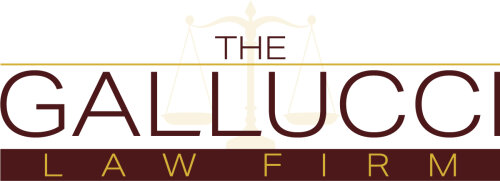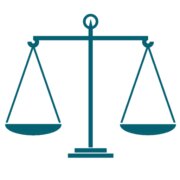Best Arrests & Searches Lawyers in New York
Share your needs with us, get contacted by law firms.
Free. Takes 2 min.
Or refine your search by selecting a city:
List of the best lawyers in New York, United States
About Arrests & Searches Law in New York, United States
Arrests and searches are two critical aspects of criminal law in New York, United States. An arrest occurs when law enforcement takes an individual into custody, typically because they suspect that person has committed a crime. A search involves law enforcement officers examining a person's body, property, or belongings in order to find evidence related to a suspected crime. The rights of individuals during these processes are protected by both the United States Constitution and various New York state laws. Understanding how arrests and searches work, along with your associated rights, is essential for anyone who might encounter the criminal justice system in New York.
Why You May Need a Lawyer
People may require legal help with arrests and searches for several reasons. If you are arrested or believe your property may have been unlawfully searched, an attorney can review the details and protect your rights. Legal counsel is especially important if:
- You have been arrested and are facing criminal charges
- Your home, vehicle, or personal belongings were searched by police
- You are the subject of a police investigation
- You believe law enforcement violated your constitutional rights during a search or arrest
- You have questions about your rights, such as the right to remain silent or to refuse a search
- You have been asked to consent to a search and are unsure about your options
Attorneys can help ensure that any evidence obtained unlawfully is excluded from prosecution and can guide you through the criminal process.
Local Laws Overview
New York has specific laws and procedures related to arrests and searches, often reflecting federal rules but with some distinctions unique to the state.
- Stop and Frisk: Police in New York can stop and question a person if they have "reasonable suspicion" that the person has committed, is committing, or is about to commit a crime. They may frisk the person for weapons if they believe the person is armed and dangerous.
- Probable Cause: An arrest or search typically requires "probable cause" - a reasonable belief, based on facts, that a crime has been committed or that evidence of a crime can be found in a specific place.
- Search Warrants: In most cases, police need a warrant issued by a judge to search a home or private property, unless an exception applies such as consent or exigent circumstances.
- Miranda Rights: After an arrest, police must inform detainees of their rights, including the right to remain silent and the right to an attorney.
- Detentions: New York law sets time limits for how long a person can be held before seeing a judge, and outlines procedures for setting bail or releasing individuals.
- Exclusionary Rule: Evidence obtained through unlawful arrests or searches may be excluded from use in court under both federal and New York law.
Frequently Asked Questions
What should I do if I am approached by the police in New York?
Remain calm, do not resist, and politely ask if you are free to leave. If you are not under arrest, you can usually walk away. Otherwise, comply with lawful instructions and request to speak to an attorney.
Do the police always need a warrant to search my property?
No, there are exceptions where law enforcement can search without a warrant, such as with your consent, during an arrest, in emergencies, or if evidence is in plain view. However, in most cases involving a home or private property, a warrant is required.
Can I refuse a search in New York?
Yes, you have the right to refuse consent to a search. Be clear and polite in stating that you do not consent. However, police may still search if they have a valid legal basis, such as probable cause.
What are Miranda Rights and when must they be read?
Miranda Rights inform you of your right to remain silent and your right to an attorney. Police are required to read you these rights if you are in custody and about to be interrogated.
What happens if I am arrested?
If you are arrested in New York, you will be taken into custody, booked, and given an opportunity to contact an attorney. You have the right to know the charges against you and to appear before a judge promptly.
Can I be held without charge?
You cannot be held indefinitely without charge. New York law requires that you be brought before a judge, typically within 24 hours of arrest.
What is probable cause?
Probable cause means that police have a reasonable belief, based on facts or evidence, that you have committed or are committing a crime. It is required for most arrests and searches.
What should I do if I believe my rights were violated during a search or arrest?
Document everything you remember, do not argue or resist at the scene, and contact an attorney as soon as possible. Your lawyer can review your case and may be able to have evidence excluded if your rights were violated.
Can police search my car during a traffic stop?
Police may search your car if they have probable cause to believe it contains evidence of a crime. Certain limited searches are also allowed for officer safety or inventory purposes, but you generally have the right to refuse consent.
How can an attorney help me after an arrest or search?
An experienced attorney can protect your rights, help you understand the charges, advocate for you in court, and work to have improperly obtained evidence excluded. They can also negotiate plea deals or pursue dismissal of charges where appropriate.
Additional Resources
For more information or assistance related to arrests and searches in New York, consider reaching out to:
- New York State Bar Association - Offers lawyer referral services and legal information
- Legal Aid Society - Provides free or low-cost legal representation for eligible New Yorkers
- Office of the New York State Attorney General - Addresses complaints and inquiries about law enforcement conduct
- New York Civil Liberties Union - Advocates for protection of individual rights in policing
- New York State Unified Court System - Public records, forms, and guides about criminal procedure
Next Steps
If you or a loved one has been arrested or subject to a search, it is important to act quickly to protect your rights. Consider the following steps:
- Do not resist or argue with law enforcement at the scene
- Document everything you remember, including the names of officers, the sequence of events, and any witnesses
- Exercise your right to remain silent and request legal representation before answering questions
- Contact a qualified criminal defense attorney with experience in New York arrests and searches as soon as possible
- Follow your attorney’s advice regarding court appearances, discussions with law enforcement, and the handling of evidence
Proper legal guidance can make a critical difference in the outcome of your case and ensure that your constitutional rights are fully protected.
Lawzana helps you find the best lawyers and law firms in New York through a curated and pre-screened list of qualified legal professionals. Our platform offers rankings and detailed profiles of attorneys and law firms, allowing you to compare based on practice areas, including Arrests & Searches, experience, and client feedback.
Each profile includes a description of the firm's areas of practice, client reviews, team members and partners, year of establishment, spoken languages, office locations, contact information, social media presence, and any published articles or resources. Most firms on our platform speak English and are experienced in both local and international legal matters.
Get a quote from top-rated law firms in New York, United States — quickly, securely, and without unnecessary hassle.
Disclaimer:
The information provided on this page is for general informational purposes only and does not constitute legal advice. While we strive to ensure the accuracy and relevance of the content, legal information may change over time, and interpretations of the law can vary. You should always consult with a qualified legal professional for advice specific to your situation.
We disclaim all liability for actions taken or not taken based on the content of this page. If you believe any information is incorrect or outdated, please contact us, and we will review and update it where appropriate.
Browse arrests & searches law firms by city in New York
Refine your search by selecting a city.

















